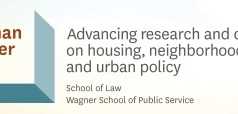Smith, Wyden Announce Agreement on Tax Framework to Help Families and Main Street Businesses
Three-Year Proposal Would Help Families, Spur Innovation, Improve Economic Competitiveness, Boost Affordable Housing
Washington, D.C. – House Ways and Means Committee Chairman Jason Smith (MO-08) and Senate Finance Committee Chairman Ron Wyden (D-OR) announced a common sense, bipartisan, bicameral tax framework that promotes the financial security of working families, boosts growth and American competitiveness, and strengthens communities and Main Street businesses.
Ways and Means Chairman Jason Smith (MO-08) said: “American families will benefit from this bipartisan agreement that provides greater tax relief, strengthens Main Street businesses, boosts our competitiveness with China, and creates jobs. We even provide disaster relief and cut red tape for small businesses, while ending a COVID-era program that’s costing taxpayers billions in fraud. This legislation locks in over $600 billion in proven pro-growth, pro-America tax policies with key provisions that support over 21 million jobs. I look forward to working with my colleagues to pass this legislation.”
Senate Finance Committee Chairman Ron Wyden (D-OR) said: “Fifteen million kids from low-income families will be better off as a result of this plan, and given today’s miserable political climate, it’s a big deal to have this opportunity to pass pro-family policy that helps so many kids get ahead. At a time when so many people in Oregon and all across America are getting clobbered by rising rents and home prices, the improvements this plan makes to the Low-Income Housing Tax Credit will build more than 200,000 new affordable housing units. By incentivizing R&D, this plan is also going to promote innovation and help sharpen our economic competitiveness with China and the rest of the world. My goal remains to get this passed in time for families and businesses to benefit in this upcoming tax filing season, and I’m going to pull out all the stops to get that done.”
The plan, which will be introduced as The Tax Relief for American Families and Workers Act of 2024:
- Supports working families with an enhanced Child Tax Credit
- Expands innovation and competitiveness with pro-growth economic policies like R&D expensing
- Builds up Main Street by cutting red tape and rebuilds communities struck by disasters with tax relief
- Enhances the Low-Income Housing Tax Credit
- Eliminates fraud and waste by ending the Employee Retention Tax Credit program
For a section-by-section, click here.
Background on The Tax Relief for American Families and Workers Act of 2024
Supports Working Families with an Enhanced Child Tax Credit
- Expand access to child tax credit: phased increase to the refundable portion of the child tax credit for 2023, 2024, and 2025.
- Eliminate penalty for larger families: ensure the child tax credit phase-in applies fairly to families with multiple children.
- One-year income lookback: flexibility for taxpayers to use either current- or prior-year income to calculate the child tax credit in 2024 or 2025, similar to bipartisan action taken six times in the past 15 years.
- Inflation relief: adjust the tax credit for inflation starting in 2024.
Expands Innovation and Competitiveness with Pro-Growth Economic Policies
- Research & Development (R&D) expensing so businesses of all sizes can immediately deduct the cost of their U.S.-based R&D investments instead of over five years – encouraging American innovation and improving our competitive position versus China and the rest of the world.
- Interest deductibility: continued flexibility for businesses forced to borrow at higher interest rates to meet their payroll obligations and expand their operations.
- 100 percent expensing: restore full and immediate expensing for investments in machines, equipment, and vehicles.
- Taiwan double tax relief: strengthen America’s competitive position with China by removing the current double taxation that exists for businesses and workers with a footprint in both the United States and Taiwan.
Builds Up Main Street and Rebuilds Communities Struck by Disasters
- Expand small business expensing cap: increase the amount of investment that a small business can immediately write off to $1.29 million, an increase above the $1 million cap enacted in 2017.
- Cut red tape for small business: adjust the reporting threshold for businesses that use subcontract labor from $600 to $1,000 and index for inflation – the first update to the threshold since the 1950s.
- Help families get back on their feet with disaster tax relief covering recent hurricanes, flooding, wildfires, and the Ohio rail disaster.
Increases supply of low-income housing by enhancing the Low-Income Housing Tax Credit, a public-private partnership with a proven track record, with increased state allocations and a reduced tax-exempt bond financing requirement.
Eliminates Fraud and Waste by Ending the Employee Retention Tax Credit Program
- Saving over $70 billion in taxpayer dollars by accelerating the deadline for filing backdated claims to January 31, 2024 under the COVID-era employee retention tax credit – a program hit by major cost overruns and fraud.
###















